Other Parts Discussed in Thread: UNIFLASH
Tool/software:
Hi Champ,
I am asking for my customer.
They are using Uniflash version 8.0.0 to program F280049C-Q1.
Recently, they receive factory site feedbacks there are 8 units (total 3000 units) programmed with the same code. Dumping these 8 units memory content, there are few data different from the good programmed unit (the wrong data address seems to be random in these 8 units), then these 8 units MCU couldn't work properly because of the wrong data.
They use Command Line Interface to do the load program and verify, the failed 8 units didn't show any ERROR message after programming in the log. But dumping the failed unit memory, we do see there is some difference compared with good unit.
Left one is Good Sample memory vs right one is Failed sample memory, dumping from Flash Bank0 0x80000-0x8FFFF
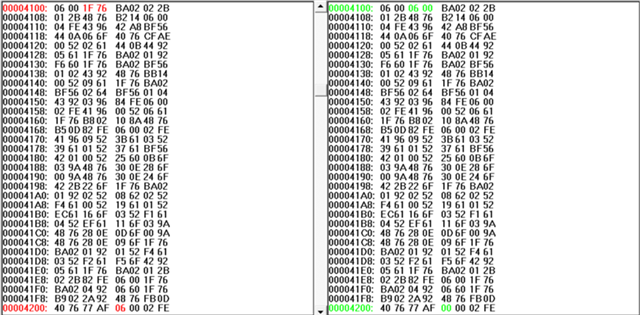
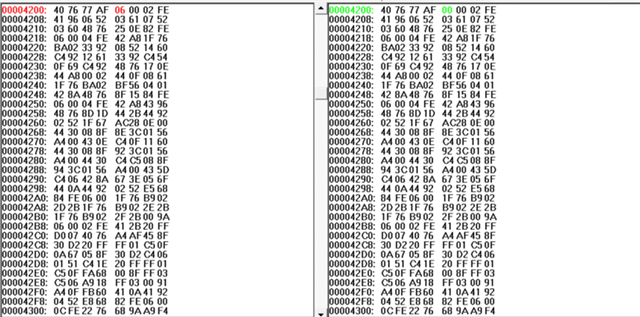
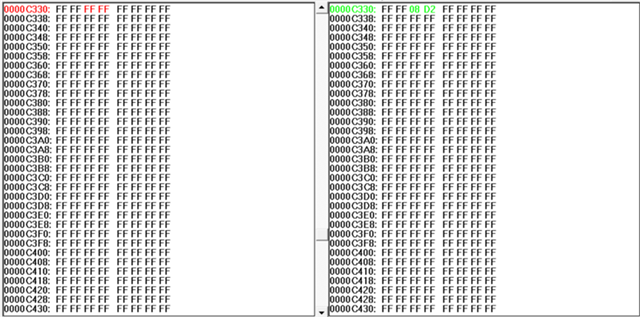
(1). If Uniflash has an error during the programming process, will the load image process continue? or it will stop immediately ?
(2). Would the expert consider those unexpected data on failed unit is because of Uniflash programming issue ? Have the expert ever seen such issue ? Showing load successfully, but with different data memory.
(3). Customer export the flash Bank0 0x80000-0x8FFFF from Uniflash, the length should be FFFF. However, from hex view, it is calculated with 0x20045. Any misconfiguration ?
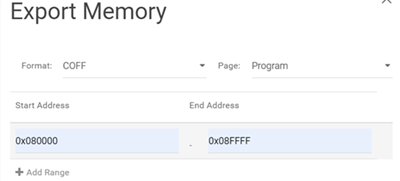
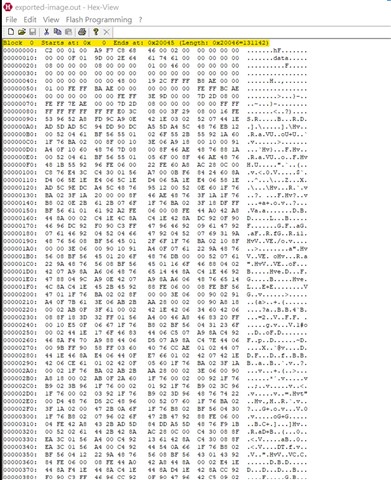
(4). Does the expert see any wrong with the Command Line called by customer?

Thanks for the support.
Regards,
Johnny



